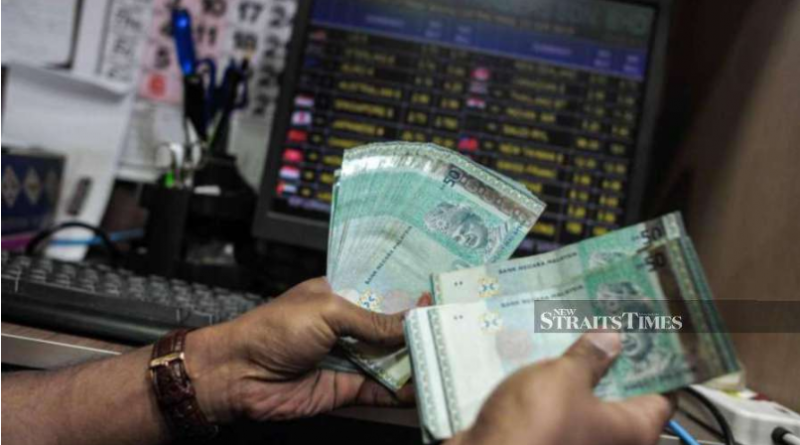Penjana economic recovery plan will push ringgit higher, say economists
KUALA LUMPUR: The rollout of Malaysia’s RM35 billion Penjana economic recovery plan will help push the ringgit higher than the US dollar this week, economists said.
Penjana could also soften pressures on the domestic economy, they said but cautioned that Malaysia’s political uncertainty could outweigh any gains from the short-term plan.
“(Penjana) measures should shore up Malaysia’s economic fundamentals, and aid the ringgit in taking as much advantage of the softer dollar as possible,” FXTM market analyst Han Tan told the New Straits Times yesterday.
Last week, the ringit extended its gain for the second straight week.
It closed higher last Friday as the dollar tumbled on risk-seeking environment amid easing lockdown among emerging countries.
At 6pm yesterday, the ringgit was RM4.28 to a dollar.
Tan said the weakening dollar had given some much-needed breathing space for the rest of the currency universe, as the global economy attempts to stage a post-pandemic recovery.
The risk-on mood in global markets has also allowed Asian currencies to pare back losses against the Greenback.
However, he said downside risks remain in what is still an uncertain outlook.
“Should the global economy’s recovery be derailed, or if US-China tensions were to further escalate, that could prompt regional currencies to unwind recent gains,” said Tan.
The Covid-19 pandemic and ongoing US-China trade war continue to impact global markets as well as the economy as a whole.
Tan said a vaccine would be a shot in the arm for risk appetite, and is expected to lend itself to surer steps for the global economic recovery.
“As global investors get the sense that mass vaccinations are close to being rolled out, such heightened prospects could spur more gains in riskier assets, including Asian and emerging-market currencies,” he said.
Bank Islam chief economist Dr Mohd Afzanizam Abdul Rashid said the intermittent rise in the new infection cases could shift the movement of the ringgit in the coming months.
Afzanizam said if that happens, it could result in volatile swings in the equity prices and other risky assets.
Thus, the investors would be watching very closely on the new infection and how quick the economy would be reopened.
He said other factors can be the bilateral relations between the US and China.
“If the friction continues, it could lead to trade friction. In that sense, it’s very externally oriented and how the Covid-19 can be constantly containers that could allow for a swift reopening of the economy.
“The discovery of vaccines would solidify the extent of economic recovery. If the test results become promising, that could propel the market sentiments.
For now, it is still quite fragile and the market could easily turn should the number of new infection cases increase abruptly as the economy reopens,” he said.
Apart from that, he said the recent decision by the OPEC+ countries to extend the 9.7 million barrels per day of production cut in July as well as to ensure strict adherence of production which was made in April showed their resolve to stabilise the crude oil prices.
“This has led higher Brent crude to US$40.82 per barrel which can be deemed positive to Malaysia and inadvertently help improve the ringgit,” he added.
Source: NST

